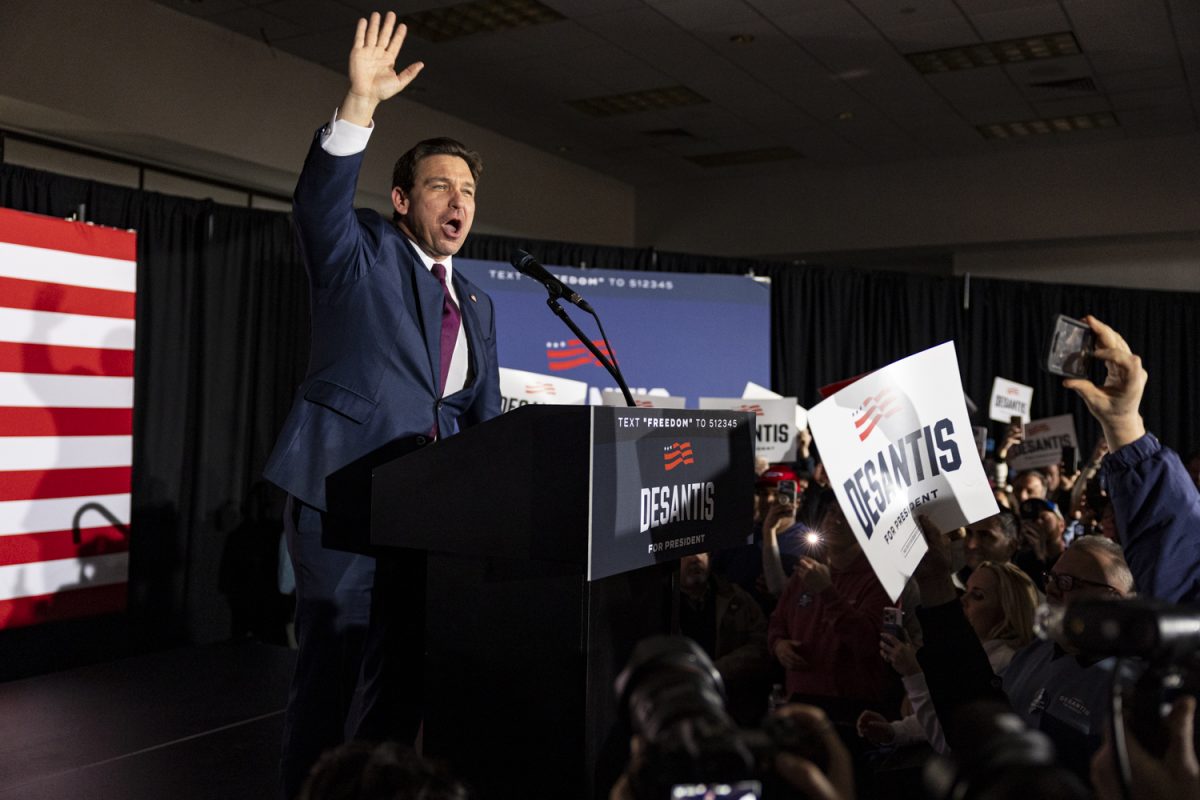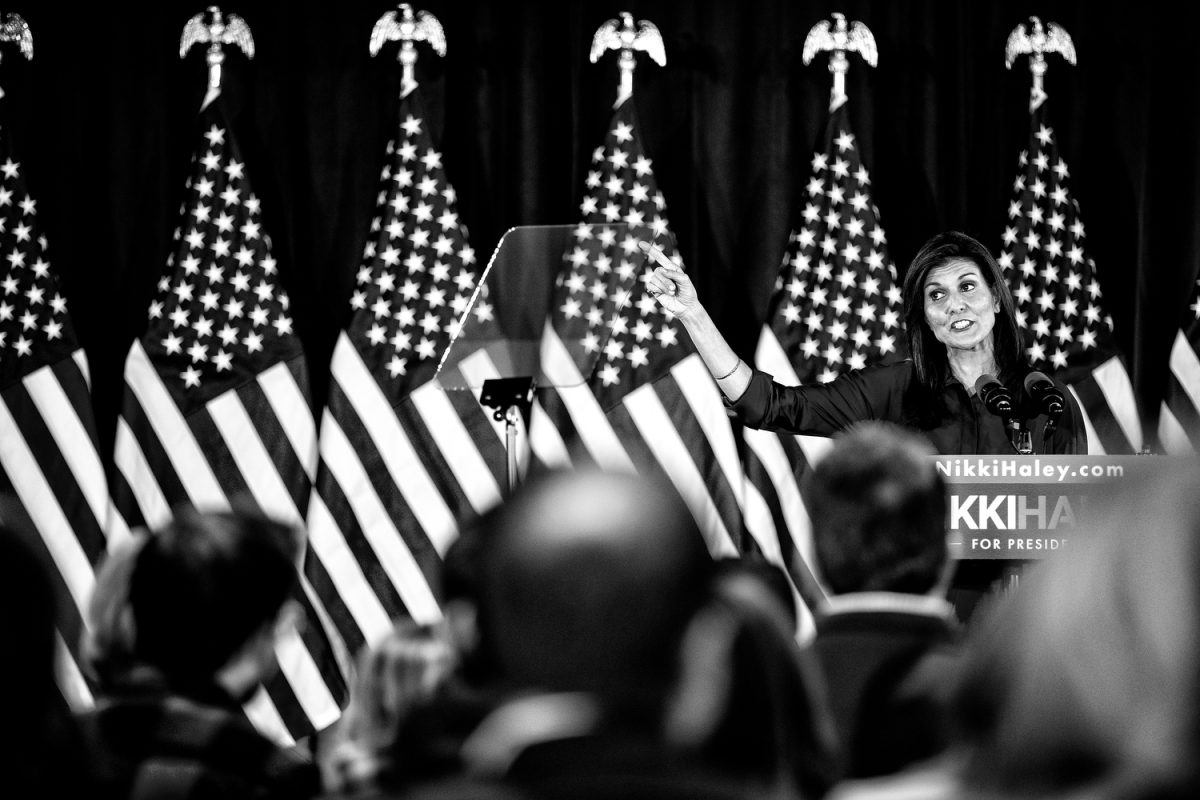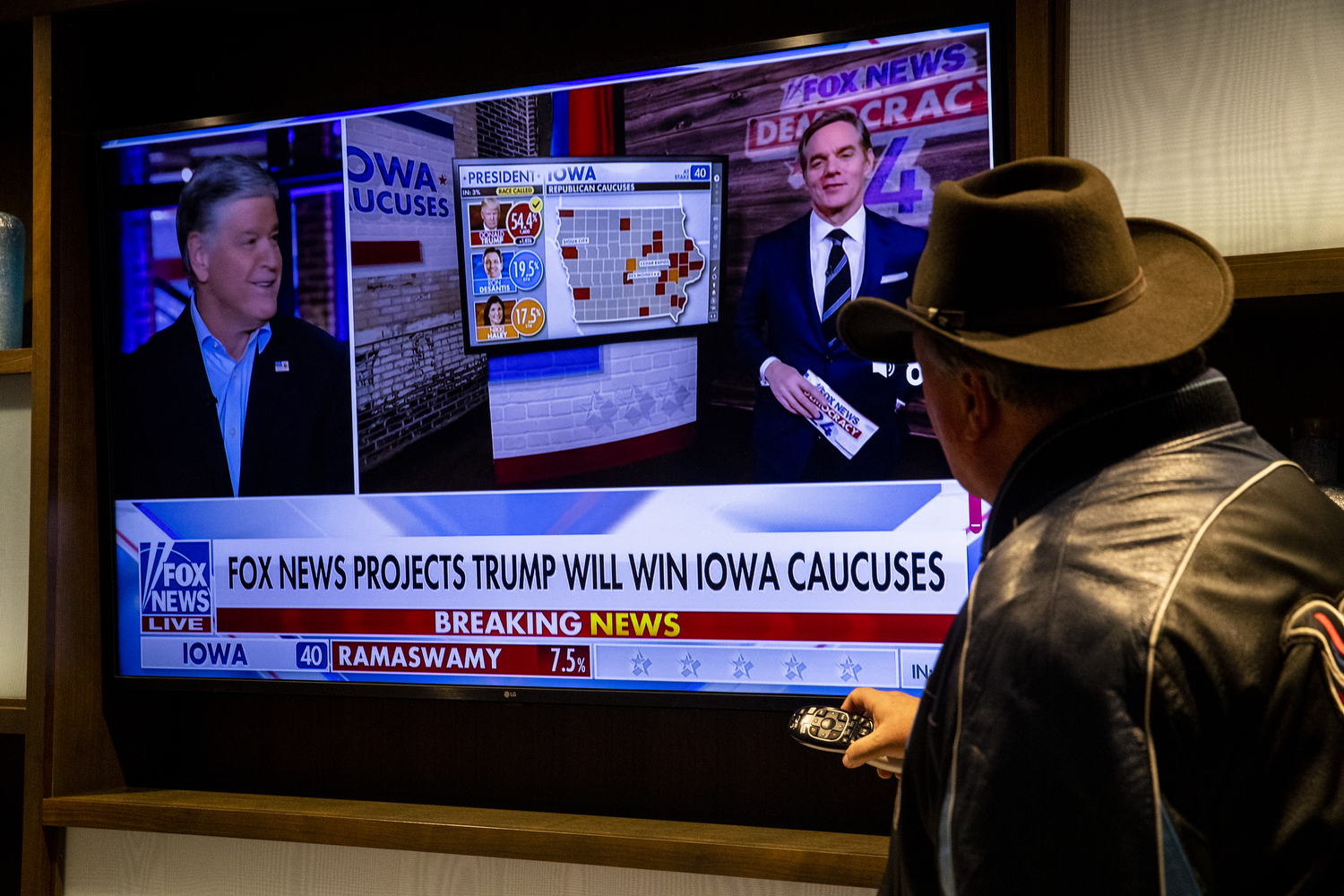DES MOINES — Former President Donald Trump’s 30-point lead in the Jan. 15 Iowa caucuses proved that Trump’s legal woes have yet to affect his performance in the GOP primary.
Trump faces 91 felony charges in four separate indictments for his role in attempting to overturn the 2020 election results; his involvement in the Jan. 6, 2021 insurrection at the U.S. Capitol; his handling of classified documents; and campaign finance violations.
In a historic victory winning the majority of Republican caucusgoers in the state, and with the widest margin in the caucus’s 52-year history, Iowa voters showed they are largely unconcerned with Trump’s legal woes and neither are the majority of GOP voters.
The nation observed Iowa’s first-in-the-nation Republican nominating contest to see whether Democratic President Joe Biden will face a rematch against Trump in the November general election. Iowa’s results cast doubt over whether another candidate – promising to be a less chaotic alternative to the embattled former president – can mount a viable challenge for the GOP nomination.
With Trump’s win in Iowa his eventual nomination is seemingly taking shape, this leaves some Democrats worried that a Trump-Biden matchup would not play out in Democrats’ favor. For Republicans seeking a post-Trump GOP, his massive caucus victory suggests the party may be unable to move on so quickly while his base remains loyal.
In his victory speech on Jan. 15 inside the bellowing halls of the Iowa Event Center, Trump said voters are looking for him to bring the country back to the prosperity he says it saw under his presidency.
“The people in our country are great, they’re all great — we love Iowa — but they’re all great,” Trump said. “[Voters] only want to see one thing: they want to see our country come back, they want us to be great again — it’s very simple.”
A January CBS News poll found that in a general election match between Trump and Biden, Trump would win, leading Biden by two points. However, a RealClearPolling average of national general election polls puts the two neck-and-neck.
However, some supporters of candidates who provide an alternative to Trump are concerned about Trump’s ability to win a general election matchup with the baggage he carries from the legal issues.
In a December New York Times/Siena College poll, 62 percent of likely Republican primary voters said Trump should still be the nominee, even if he is convicted of a serious crime.
The same poll also found that 64 percent of likely Republican primary voters support Donald Trump, with former South Carolina Gov. Nikki Haley lagging at 11 percent, and Florida Gov. Ron DeSantis at 9 percent.
In a January Des Moines Register/NBC News/Mediacom Iowa Poll, 61 percent of likely Iowa GOP caucusgoers said a conviction “does not matter” when determining their general election support for the former president.
Only 18 percent of those polled said a conviction would make them “less likely” to support Trump in a general election contest.
University of Iowa political science Professor Timothy Hagle said Trump has campaigned on and gained support from his legal troubles. Hagle said this is due to Trump’s unique popularity and the “rally around the chief” mentality his legal troubles have triggered.
Paul Hardin-Specht, 21, of Iowa City, said Trump’s legal troubles did exactly that.
“I really think that [Trump’s legal troubles] are bogus in a lot of ways,” Hardin-Specht said. “And it almost makes me like him more just because it shows how much they’re scared of him.”
According to a December New York Times/Siena College Poll, 83 percent of likely Republican primary voters nationwide think the charges against Trump are politically motivated.
Lisa Gerard, 59, of Oxford, Iowa, said she’s glad there was an overwhelming outpouring of support for Trump at her caucus site, which covered a large swath of rural Johnson County. Over 50 percent of the precinct caucus supported Trump.
“It’s all crooked,” Gerard said. “I’m happy people showed up today to show their support for now. I think some people may be skeptical to speak out because of the far left, but it’s not time to be quiet.”
Biden has looked to rally voters against Trump, billing his campaign as an anti-democratic extremist movement as some of the former president’s felony charges relate to his involvement in the insurrection at the U.S. Capitol.
The attack disrupted the certification of Biden’s legitimate victory in the 2020 election, but Trump has leveraged the attack as a campaign rallying cry. Mitchell said the majority of Republican caucusgoers don’t view Trump’s charges in the case as insurrection because they believe that the 2020 election results were not accurate. Election law experts contend that the election results were accurate, and the dozens of judges who dismissed challenges to the 2020 election results agreed.
According to an August 2023 CNN poll, 69 percent of the 1,279 likely Republican voters polled still think the 2020 election was not legitimate.
Along with criminal charges, Trump also faces two civil lawsuits including a civil trial over fraudulent property valuations in New York brought by New York Attorney General Leticia James and a civil case brought by E. Jean Carroll, who said Trump allegedly sexually assaulted her in a department store dressing room in the 1990s and has since defamed her.
Trump won Iowa by a landslide, setting his campaign up to capture the momentum heading into New Hampshire, the first primary state, where he leads with 39 percent of the vote among likely New Hampshire Republican primary voters in a January CNN/University of New Hampshire poll. Trump leads Haley by only seven points with Haley holding 32 percent of the vote in the poll.

DeSantis takes second in Iowa
DeSantis exceeded expectations in the Jan. 15 Iowa caucuses, pulling ahead of Haley in a race for second place, but he failed to close in on Trump’s massive lead. The Florida governor still polls low in New Hampshire and South Carolina.
DeSantis polls at 5 percent among likely Republican primary voters in New Hampshire, according to the January CNN/ University of New Hampshire poll. He polls at 7 percent of likely Republican primary voters in South Carolina, according to a January Emerson College poll.
During his remarks on caucus night, DeSantis — who visited all of Iowa’s 99 counties to go all in on the Hawkeye State to propel his campaign forward — affirmed that he will continue his bid for the White House.
“But I can tell you, because of your support, in spite of all of that they threw at us, everyone against us, we’ve got our ticket punched out of Iowa,” DeSantis said.

Haley gets third-place finish, polls high in New Hampshire
Haley fell short of caucus night expectations, finishing the night with just 19 percent of the vote among Iowa Republican caucusgoers in the Jan. 15 contest.
She had recently overtaken DeSantis’ coveted second-place spot in the January Des Moines Register/NBC News/Mediacom Iowa Poll, released just days before the Iowa caucuses, polling at 20 percent of likely Iowa Republican caucusgoers.
She’s expected to perform well in New Hampshire with current polling averages placing her second to Trump in the Granite State.
With former Arkansas Gov. Asa Hutchinson and Christie exiting the primary race, Haley is cementing herself as an alternative to Trump for the “never Trump” wing of the party.
In fact, 43 percent of Haley’s supporters would vote for Biden over Trump in a general election matchup, according to a January edition of the Des Moines Register/NBC News/Mediacom Iowa poll.
David DeLayo, 40, of Marion, said he caucused for Haley because she is a realistic, balanced candidate and he is looking for an alternative to Trump because of his handling of Trump’s 2020 election loss.
“I honestly think Donald Trump is a threat to our democracy. I think he would change the Constitution,” DeLayo said.
If Haley outperforms expectations in New Hampshire she could be on track to challenge Trump in South Carolina, her home state.
“But tonight, Iowa did what Iowa does so well,” Haley said. “But when you look at how we are doing in New Hampshire, in South Carolina, and beyond, I think we can safely say — tonight, Iowa made this Republican primary a two-person race.”
While early nominating contests are underway, Trump faces challenges to his eligibility in some states’ primaries, so it remains to be seen how other Republican contenders could benefit.
The U.S. Supreme Court in February is expected to decide if those cases will withstand scrutiny after the Colorado Supreme Court booted Trump from the state’s primary ballot in mid-December. Maine’s Secretary of State later followed suit, after dozens of lawsuits were filed in states across the country claiming Trump is unable to remain on the ballot because he engaged in an insurrection.
Shreya Reddy and Isabelle Foland, of The Daily Iowan, and Brittney J. Miller, of the Cedar Rapids Gazette, contributed to this report.



